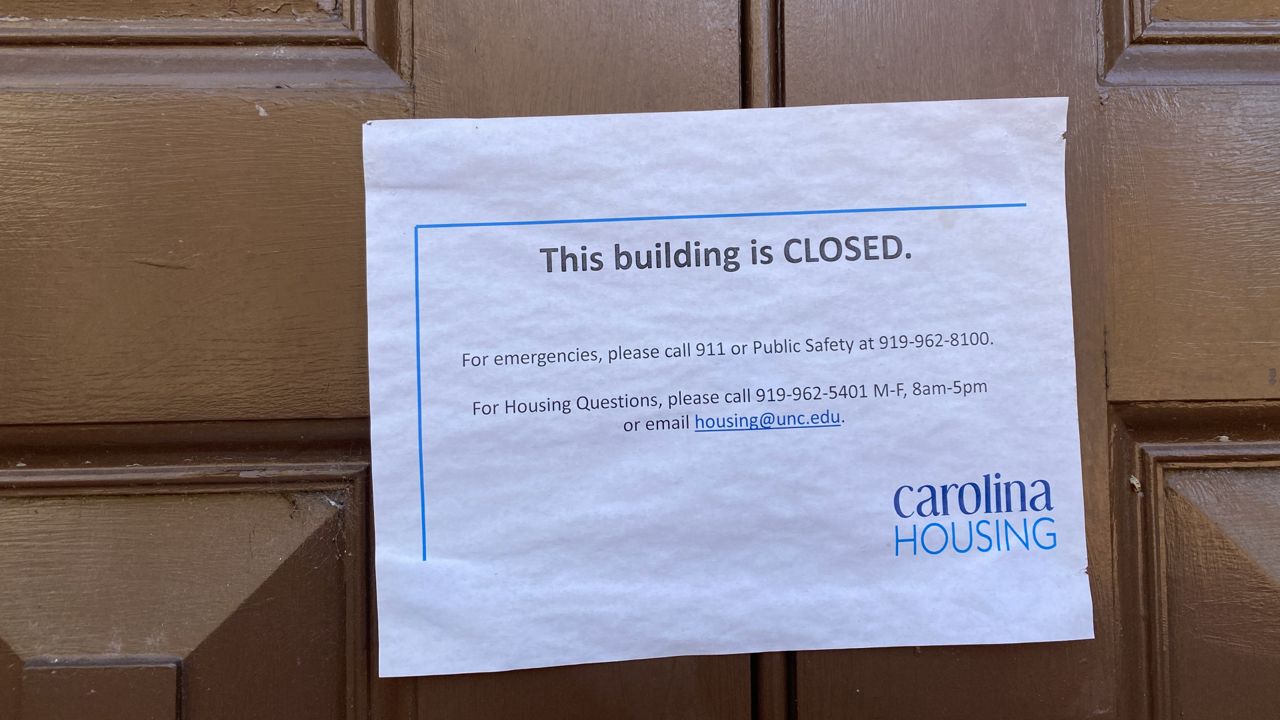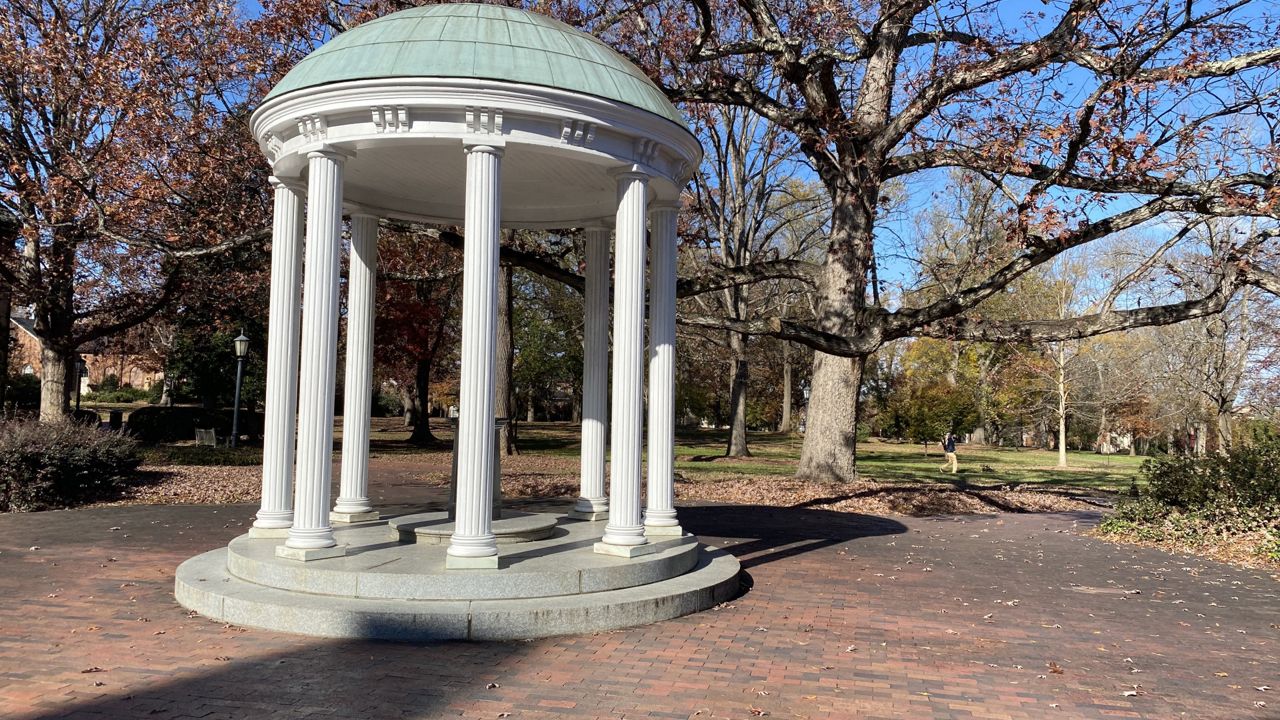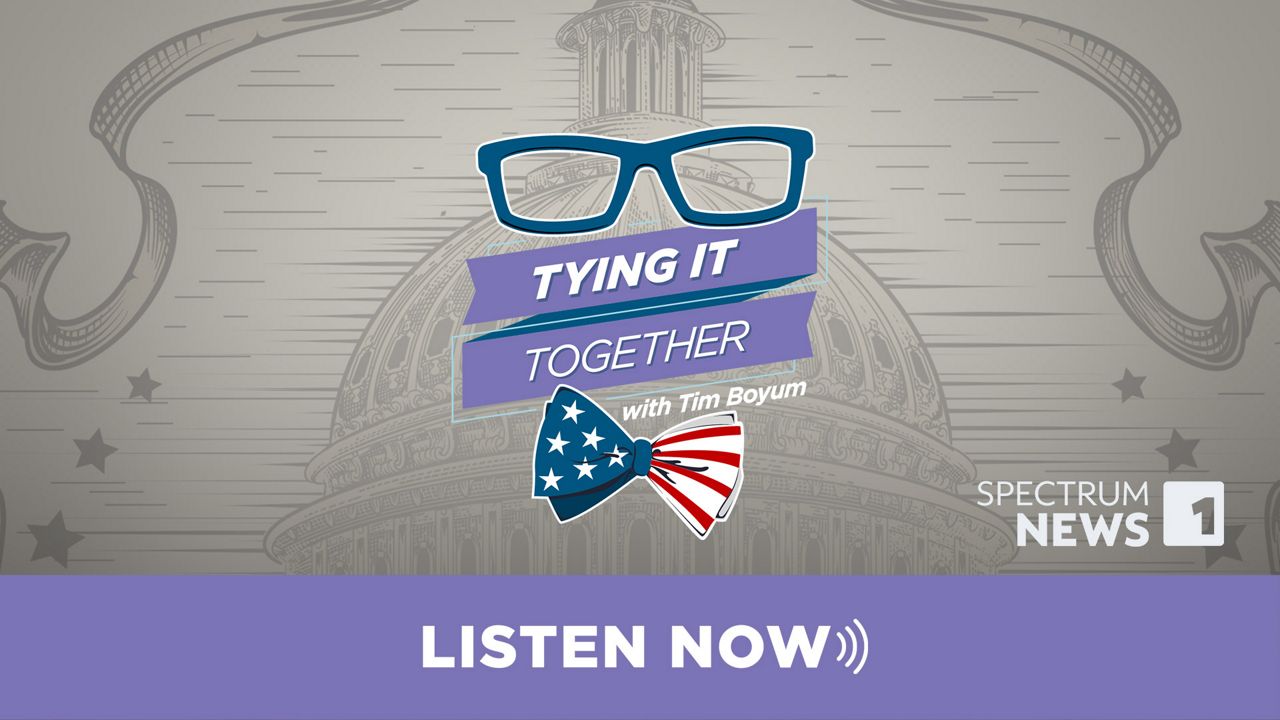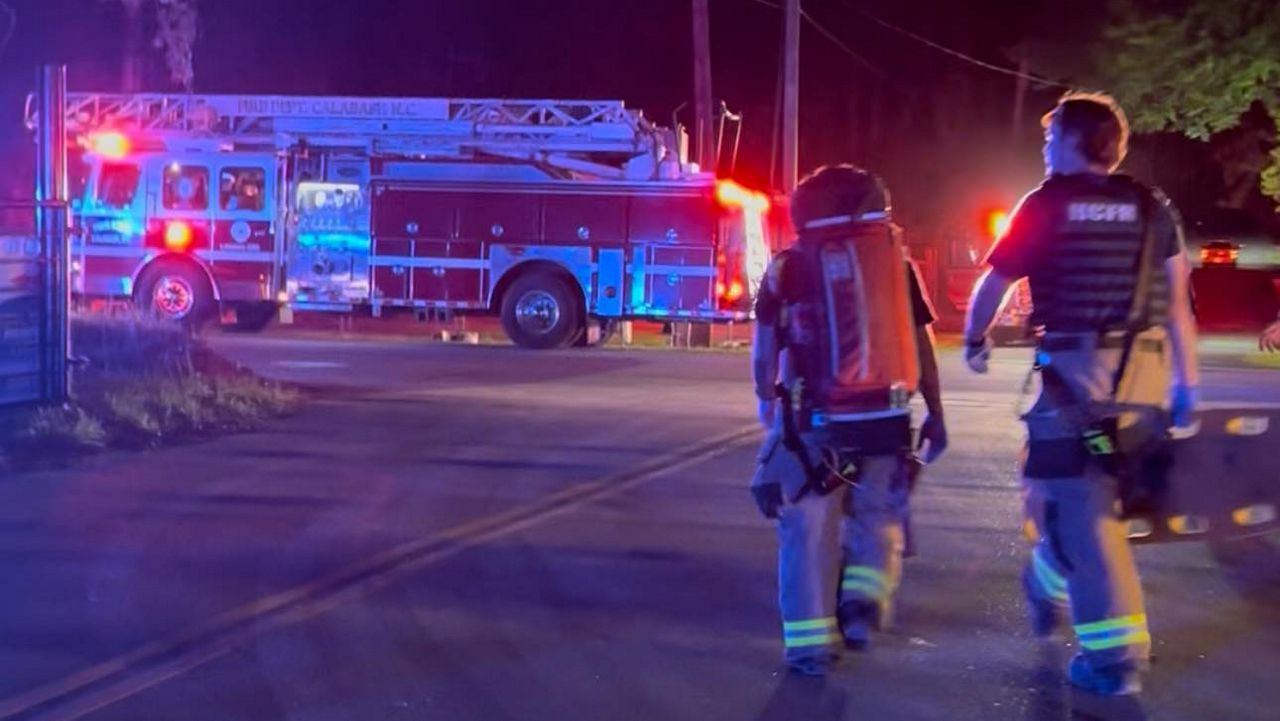CHAPEL HILL, N.C. — North Carolina’s public universities plan to again try a mix of in-person and remote learning in the spring semester.
The coronavirus pandemic sent many classes online for the fall semester and, despite precautions to control the spread of the virus, shut down some campuses just days or weeks after students arrived.
In an open letter, more than 60 faculty members at the University of North Carolina at Chapel Hill called on the administration to abandon plans to bring students back to campus and stick to mostly virtual classes for the spring.
“Given current conditions and UNC’s track record, the plans for spring are doomed to repeat too many of the failures of the fall,” the faculty members wrote in the letter, published in the student-run Daily Tar Heel newspaper.
“The only ethical decision is to cancel face-to-face instruction (with the exception of classes that demand it, such as clinical experience) and to keep on-campus residency reserved for those who have special circumstances,” the letter states.
Responding to the letter, Joel Curran, vice chancellor of university communications, said, “Like most universities across the nation, we have learned from the fall semester. With input from faculty, staff, students, members of the local community, and officials from the Orange County Health Department, we have planned for a significantly different on-campus Carolina experience in the spring, including mandatory testing."
"We are closely monitoring state and national case counts, and we are prepared to adjust our plans at any time and will announce changes no later than January 9 – prior to the return of our on-campus residents, if the conditions necessitate it,” Curran said in a statement to Spectrum News 1.
"Like the fall term, most classes will still be taught via remote instruction, and we have improved the communication and enforcement of our COVID-19 Community Standards to better manage off-campus student behaviors. The University will be communicating regularly with students and parents over winter break to ensure they fully understand their role in protecting our campus and community next term,” Curran said.
After coronavirus case clusters began to pop up in the fall, connected to campus parties, fraternities and sororities and other student gatherings, UNC Chapel Hill, North Carolina State University and East Carolina University sent students home.
Other campuses in the system also saw case clusters, including dozens of people in the football program at Appalachian State University in Boone. One student at Appalachian State died from the virus.
Most of the campuses that did remain open for some in-person learning sent all students home for the rest of the year at the start of Thanksgiving break, ending classes early and moving up exams.
Schools in the UNC system are all modifying their plans for more online classes, shorter school years, and no spring break for the upcoming semester. But they all plan to have some students back on campus starting in January.

UNC History Professor Jay Smith said the university’s plans are better than they were for the fall semester. But, he said, “the situation is exponentially worse.”
North Carolina has seen coronavirus case numbers surge as the weather has cooled in the fall. In the week after Thanksgiving, the number of people hospitalized with the virus broke the 2,000 mark for the first time since the pandemic reached the state in March.
More than 5,300 people in North Carolina have died from COVID-19 this year, according to data from the state Department of Health and Human Services.
On Wednesday, public health officials reported another 4,200 cases in the state. The recent numbers are much higher than they were at the start of the fall semester. The average number of cases is more than twice what it was when universities started in August.
For Smith and others, the numbers are just too high to bring students back to campus next month. “We all have to have the patience to endure a couple more months of inconvenience,” he said in an interview with Spectrum News 1.
North Carolina is preparing to start distributing the Pfizer coronavirus vaccine this month. The first doses will go to health care workers and then to people at increased risk, like staff and residents in long-term care facilities. Healthy college students will be some of the last in line to get the new vaccine.
At N.C. State in Raleigh, students living on or near campus and planning to attend in-person classes will need to have a negative test before classes start. The university also plans to test between 3,200 and 5,700 people, a combination of students, staff and faculty, every two weeks.
The Raleigh campus said it expects to have 5,000 students on campus, 11,000 off-campus students attending some classes in-person, and 5,200 faculty and staff on campus.
“As our knowledge of the disease has grown, so too have our surveillance and testing capabilities. Following our experience of bringing students back to campus in August, we know much more about how to use a robust testing plan to help keep our community safe,” the university said in a campus-wide message about spring plans.
UNC’s testing plans are even more aggressive, with testing twice a week for undergraduates living on campus or taking on-campus classes. Undergrads who live in Chapel Hill or Carrboro, even if they are only taking online classes, still need to get tested weekly for the virus.
“Testing is only one part of a comprehensive approach to preventing the spread of the COVID-19 virus, but it is an important part,” Chancellor Kevin Guskiewicz said in a letter to the campus before Thanksgiving.
UNC is also building it’s own lab to run coronavirus tests so it can get the results quicker, Guskiewicz said.
All public universities in North Carolina will use aggressive testing strategies to try to keep cases outbreaks under control.
The university, and most others in the UNC system, say they are keeping residential students to one per dorm room, reducing capacity in residential buildings, and increasing the space available for quarantine and isolation for on-campus students.
Universities in the system are also planning to have shorter semesters as they did in the fall, bringing students to campus later in January, cancelling spring break, and scheduling exams earlier.
Deb Aikat, an associate professor at UNC who is the first signatory on the open letter, said the shorter semester took a toll on students in the fall. “Students were stressed out, faculty were stressed out,” he said. “It took a toll on their mental health.”
Aikat and other faculty members said they are skeptical of the testing strategy. “You can test people all day, but that doesn’t prevent the disease,” Aikat said in an interview with Spectrum News 1.
There’s still a lot of uncertainty for students and faculty, especially after the sudden closures at UNC, N.C. State and ECU in the fall. Plans could change at any of the UNC system’s universities.
“We will announce any changes to the spring semester operations by January 9, and until then, we will prepare for the semester by making the decisions we believe will best help our community have a safe and successful semester,” the UNC chancellor said in his campus-wide email last week.









)